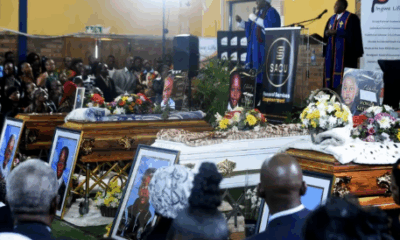News
Cape Town’s Dial-a-Ride Cuts Back Services Amid Budget Crisis, Leaving Vulnerable Users in Limbo

Dial-a-Ride Tightens Rules, Sparking Concern for Cape Town’s Most Vulnerable
Cape Town’s Dial-a-Ride (DaR) service is tightening its belt, forcing tough choices as it grapples with a widening budget gap. The City’s once more flexible transport system for people with disabilities will now focus strictly on a narrower group: wheelchair users and those with severe walking difficulties. For many who relied on DaR’s broader reach, this is a harsh blow.
What’s Changing and Why
Starting 8 September 2025, the DaR service will only operate Monday to Friday during peak hours, primarily ferrying eligible users between their homes and workplaces. Weekend and public holiday trips will be severely restricted and only allowed for work-related travel. Gone are the days when DaR would support travel for education, medical visits beyond core commuting, recreational activities, or even shopping.
The reason? Money. The service operates on an annual budget of R28.2 million, but its running costs have ballooned to roughly R40 million a year. With demand outpacing resources, the City has had to prioritize its core mission: helping those who face the greatest mobility challenges get to work.
A Service Once Broader, Now Narrowed
For over 20 years, the Dial-a-Ride has evolved from a simple transport aid to an essential lifeline for people with diverse special needs. It grew to cover trips to schools, hospitals, social visits, and shops—creating a network that many users depended on to stay connected and active in their communities.
Now, the service is being pulled back to basics, leaving many users feeling abandoned.
Voices from the Community
Abram Lintnaar, 51, who lost access to Dial-a-Ride trips to Atlantis last year, speaks for many. He works at the Cape Town Society for the Blind but now struggles to get to work without support.
“This is just discrimination,” he says bluntly. “I’ve even approached the South African Human Rights Commission about this.” Without the service, Lintnaar must pay others to help him reach public transport hubs, adding financial and emotional strain.
The SAHRC has responded by opening an investigation into the City’s actions and their impact on vulnerable residents.
A Deeper Look: Why This Matters
Cape Town’s public transport system has long been a patchwork, especially when it comes to serving people with disabilities. Many struggle daily with inaccessible buses, long waits, and costly alternatives. Dial-a-Ride was designed to bridge that gap, offering a more tailored solution.
Cutting back the service risks isolating people who already face social and economic barriers, undermining their ability to work, study, or simply live full lives. The City’s budget woes reflect broader challenges in municipal funding and the tough trade-offs governments must make.
Public Reaction and Broader Implications
Social media has lit up with voices both sympathetic and critical. Some understand the financial realities but argue the City should find creative solutions, like partnering with NGOs or seeking special funding. Others call for a review of transport policies to ensure inclusivity is not sacrificed.
This isn’t just about buses or budgets, it’s about dignity, independence, and fairness in one of South Africa’s most vibrant cities.
The City of Cape Town faces a difficult road ahead. Can it balance financial sustainability with social responsibility? Will the SAHRC investigation lead to policy changes or increased funding?
For now, Cape Town’s disabled community waits anxiously, hoping this essential service will not be lost to the bottom line.
{Source: IOL}
Follow Joburg ETC on Facebook, Twitter , TikTok and Instagram
For more News in Johannesburg, visit joburgetc.com



























